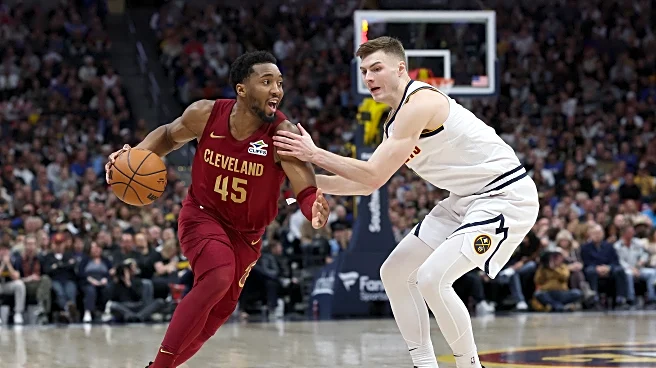What's Happening?
Penn State University has terminated the contract of its head football coach, James Franklin, after a series of disappointing performances. Franklin, who was in his twelfth season with the Nittany Lions, faced three consecutive losses following a promising 3-0 start to the season. The losses included a double-overtime defeat to Oregon, an unexpected upset by UCLA, and a home loss to Northwestern. Franklin acknowledged his responsibility for the team's performance, stating, 'I take full responsibility for all of it.' His departure comes with a buyout exceeding $49 million, and the position is now open, potentially attracting interest from current or former NFL head coaches.
Why It's Important?
The firing of James Franklin marks a significant shift for Penn State's football program, which is a prominent player in college sports. Franklin's tenure included notable successes, but recent losses have prompted the university to seek new leadership. This decision could impact recruitment, team morale, and the overall direction of the program. The substantial buyout reflects the financial implications of such a high-profile coaching change. The opening of this position may influence the dynamics of college football coaching, as it is considered one of the more desirable jobs in the sport, potentially drawing interest from high-caliber candidates.
What's Next?
With the head coach position now vacant, Penn State will likely begin a search for Franklin's successor. This process may involve considering candidates from both college and professional football backgrounds. The university's decision will be closely watched by stakeholders, including fans, players, and alumni, as it will shape the future of the football program. The new coach will face the challenge of rebuilding team confidence and performance, aiming to restore Penn State's competitive standing in college football.
Beyond the Headlines
The firing of James Franklin may also prompt discussions about the pressures and expectations placed on college coaches, particularly in high-stakes programs like Penn State. It highlights the volatile nature of coaching careers in sports, where performance is closely tied to job security. Additionally, the financial aspects of coaching contracts, such as buyouts, underscore the economic dimensions of college sports, where significant sums are invested in leadership and team success.











